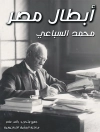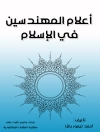The First World War cannot be sufficiently documented and understood without considering the analytical category of gender. This exciting volume examines key issues in this area, including the ‘home front’ and battlefront, violence, pacifism, citizenship and emphasizes the relevance of gender within the expanding field of First World War Studies.
İçerik tablosu
1. Introduction: Women’s and Gender History of the First World War – Topics, Concepts, Perspectives; Christa Hämmerle, Oswald Überegger and Birgitta Bader Zaar 2. Women Behind the Lines: The Friuli Region as a Case Study of Total Mobilization, 1915-1917; Matteo Ermacora 3. Imagining and Communicating Violence: The Correspondence of a Berlin Family, 1914 to 1918; Dorothee Wierling 4. Love in the Trenches: German Soldiers’ Conceptions of Sexual Deviance and Hegemonic Masculinity in the First World War; Jason Crouthamel 5. Visualizing ‘War Hysterics’: Strategies of Feminization and Re-Masculinization in Scientific Cinematography, 1916-1918; Julia Barbara Köhne 6. ‘Mentally broken, physically a wreck …’: Violence in War Accounts of Nurses in Austro-Hungarian Service; Christa Hämmerle 7. Remembering French and British First World War Heroines; Alison S. Fell 8. The Baby in the Gas Mask: Motherhood, Wartime Technology, and the Gendered Division between the Fronts During and After the First World War; Susan R. Grayzel 9. The Female Mourner: Gender and the Moral Economy of Grief During the First World War; Claudia Siebrecht 10. French Boys and Girls in the Great War: Gender and the History of Children’s Experiences 1914-1918; Manon Pignot 11. Towards a New Internationalism: Pacifist Journals Edited by Women, 1914-1919; Bruna Bianchi 12. ‘A foolish dream of sisterhood’: Anti-Pacifist Debates in the German Women’s Movement, 1914-1919; Ingrid Sharp 13 . War Activities and Citizenship Rights in and outside the Occupied Zone: Lithuanian Women During the First World War; Virginija Jureniene 14. Love for the Nation in Times of War: Strategies and Discourses of the National and Political Mobilization of Slovene Women in Carinthia from 1917 to 1920; Tina Bahovec
Yazar hakkında
Tina Bahovec, University of Klagenfurt, Austria Bruna Bianchi, University Ca’ Foscari Venice, Italy Jason Crouthamel, Grand Valley State University in Allendale, Michigan, USA Matteo Ermacora is an independent scholar Alison S. Fell, University of Leeds, UK Susan R. Grayzel, University of Mississippi, USA Virginija Jur?nien?, Vilnius University, Lithuania Julia Köhne, University of Vienna, Austria Manon Pignot University of Picardie, France Ingrid E. Sharp, University of Leeds, UK Claudia Siebrecht, University of Sussex, UK Dorothee Wierling, University of Hamburg, Germany












